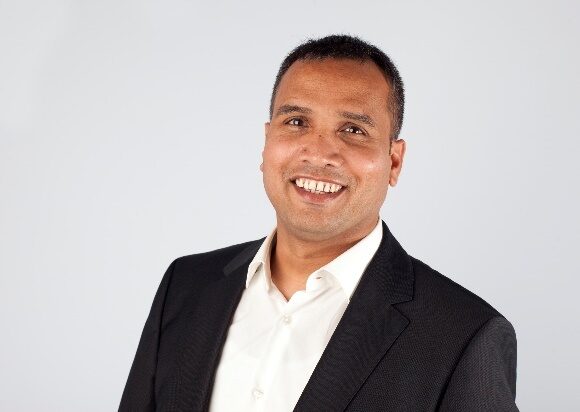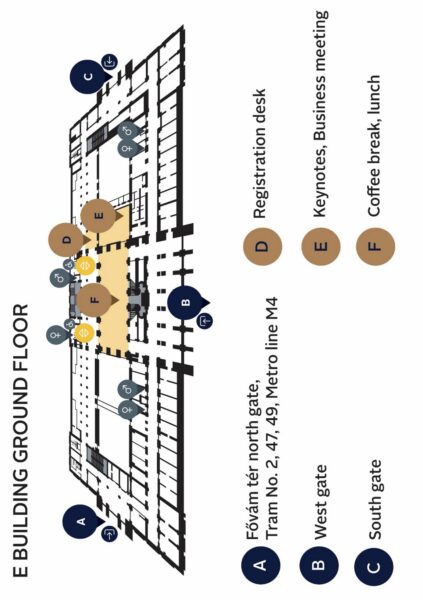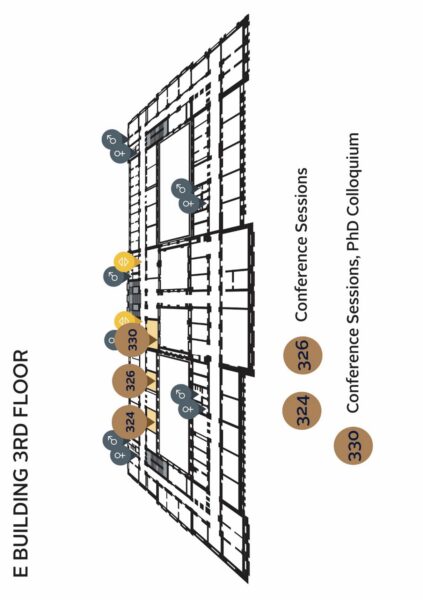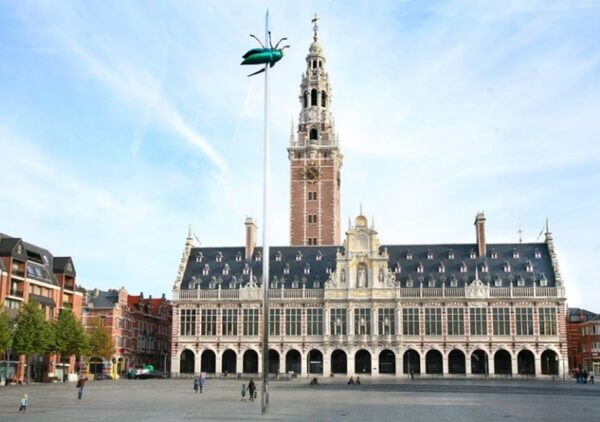EGOV-CeDEM-ePart 2023 (EGOV2023) PROGRAMME
tentative, updated 17th of August
(click here to download the full programme)
All conference events will take place in Building E (the old, main building of Corvinus at Fővám tér 8.), including coffee breaks and lunch.
Only the Reception, the Gala dinner, the social trip and the PhD dinner will be off-campus.
E Bldg. Lecture Hall III. will be the location for Keynotes and the business meeting and it can seat up to 140.
Coffee and lunch will be served in the Aula (right by LH III.).
E Bldg. Seminar room 330 has seats for 80 people, while E Bldg. Seminar room 324 and 326 has 40 each.
Monday 4 September
PhD Colloquium – Onsite for invited participants only.
Chairs: Gabriela Viale Pereira, Ida Lindgren & J. Ramon Gil-Garcia
Location: E Bldg. Seminar room E 330
Tuesday 5 September
| 08:30- | REGISTRATION E Bldg. Aula (on Lecture Hall III. side) | ||
| 9.00- 10.30 | Welcome and Opening
Keynote Speech: Yogesh Dwivedi Chair: Csaba Csáki Location: E Bldg. Lecture Hall III. |
||
| 10.30-11.00 | Coffee break
E Bldg. Aula |
||
| 11.00-12.30 | Session 1 – ICT & Sustainability
E Bldg. Seminar room 330 |
Session 2 – E-dem & E-Part 1
E Bldg. Seminar room 326 |
Session 3 – AI 1
E Bldg. Seminar room 324 |
| 12.30-13.30 | Lunch
E Bldg. Aula |
||
| 13.30-15.00 | Panel – Trustworthy AI Governance
E Bldg. Seminar room 330 |
Session 4 – E-dem & E-Part 2
E Bldg. Seminar room 326 |
Session 5 – AI 2
E Bldg. Seminar room 324 |
| 15.00-15.30 | Coffee break
E Bldg. Aula |
||
| 15.30-17.00 | Workshop I-– Activities of Non-profit Organisations and their Influence on Open Data User Barriers
E Bldg. Seminar room 330 |
Session 6 – open data 1
E Bldg. Seminar room 326 |
Session 7 – AI 3
E Bldg. Seminar room 324 |
| 17:45 | Buses leave for the Castle District | ||
| 18.30 | Welcome Reception
Disctrict Municipality of Budapest Capital Distrcit I. (Castle District) |
||
Wednesday 6 September
| 08:30- | REGISTRATION | ||
| 9.00-10.30 | Keynote Speech: András Koltay, President of the National Media and Infocommunications Authority and the Media Council
Best Paper Awards Chair: Ida Lindgren |
||
| 10.30-11.00 | Coffee break
E Bldg. Aula |
||
| 11.00-12.30 | Workshop II – Proactive and Personalised Public Services
E Bldg. Seminar room 330 |
Session 8 – open data 2
E Bldg. Seminar room 326 |
Session 9 – EGOV 1
E Bldg. Seminar room 324 |
| 12.30-13.30 | Lunch – Including poster session
E Bldg. Aula |
||
| 13.30-15.00 | Workshop III – Integrated Public Service Co-Creation and Provision: Guidelines and Lessons Learnt
E Bldg. Seminar room 330 |
Session 10 – open data 3
E Bldg. Seminar room 326 |
Session 11 – EGOV 2
E Bldg. Seminar room 324 |
| 15.00-15.30 | Coffee break
E Bldg. Aula |
||
| 15.30-16.30 | Session 12 – Digital society 1
E Bldg. Seminar room 330 |
Session 13 – smart cities 1
E Bldg. Seminar room 326 |
Session 14—EGOV 3
E Bldg. Seminar room 324 |
| 16.30-17.30 | IFIP 8.5 Business meeting
E Bldg. Lecture Hall III. |
||
| 18.45-22.00 | Conference Dinner – Location Jászai Mari tér
|
||
Thursday 7 September
| 08:30- | REGISTRATION | ||
| 9.00-10.30 | Session 15 – Digital society 2
E Bldg. Seminar room 330 |
Session 16 – Emerging 1
E Bldg. Seminar room 326 |
Session 17 – EGOV 4
E Bldg. Seminar room 324 |
| 10.30-11.00 | Coffee break
E Bldg. Aula |
||
| 11.00-12.30 | Session 18 – Smart cities 2
E Bldg. Seminar room 330 |
Session 19 – Emerging 2
E Bldg. Seminar room 326 |
Session 20 – EGOV 5
E Bldg. Seminar room 324 |
| 12.30-13.30 | Lunch
E Bldg. Aula |
||
| 13.30-14.30 | Session 21 – E-Dem & E-Part 3
E Bldg. Seminar room 330 |
Session 22 – Emerging 2
E Bldg. Seminar room 326 |
Session 11 – EGOV 6
E Bldg. Seminar room 324 |
| 14.30-15.30 | Closing
Keynote Speech: László Trautmann, Corvinus University Chair: Marijn Janssen E bldg. Lecture Hall III |
||
| 16.45 -22.00 | Social Trip: Gellért Hill and Vine Tasting in the Etyek Region (the number of participants is limited to 47 – registration required – places are allocated on a first-come, first-served basis)
Bus will be waiting by the West Gate of Bldg. E |
||
Full Program
Tuesday 5 September
| 9.00- 10.30 | Welcome and opening
Welcome by Local Hosts, Conference Chairs and IFIP WG8.5 chair Welcome by Tamara Keszey Vice-Rector for Research, Corvinus University of Budapest as host Keynote speech: Prof. Yogesh Dwivedi – Metaverse for Government: A Perspective on Challenges, Opportunities, and Future Research Agenda Chair: Csaba Csáki (host) |
||
| 10.30-11.00 | E Bldg. Aula
Coffee break |
||
| 11.00-12.30
|
E Bldg. Seminar room 330
Session 1 – ICT & Sustainability Chairs: Iryna Susha, Jolien Ubacht & Gianluca Misuraca
Jolien Ubacht, Jonathan Schmid, Elmer Rietveld, Jelmer Lennartz, Boriana Rukanova and Yao Hua Tan – Data sharing solutions in the EU Circular Economy: The Case of Steel Import for the Automotive Sector
May Myat Thwe and Kyung Ryul Park – A Systematic Literature Review on the Adoption of Edge Computing for Sustainable Development
Elin Wihlborg, Ida Lindgren, Karin Hedström and Katarina Gidlund – Sustainable institutional design for a digital era – learning from cases of automation |
E Bldg. Seminar room 326
Session 2 – E-dem & E-Part Chairs: Noella Edelmann, Marius Rohde Johannessen & Peter Parycek
Martin Karlsson and Magnus Adenskog – The case for a broader approach to e-participation research: Hybridity, isolation and system orientation
Bokyong Shin – Residents’ voices on proposals: Analysing a participatory budgeting project in Seoul using topic modelling
Noella Edelmann, Efthimios Tambouris and Georgia Livieri – Ethics challenges in public service co-creation
|
E Bldg. Seminar room 324
Session 3 – AI & decision-making1 Chairs: Evangelos Kalampokis, Habin Lee & Euripidis Loukis
Euripidis Loukis, Stuti Saxena, Nina Rizun, Maria Ioanna Maratsi, Mohsan Ali and Charalampos Alexopoulos – ChatGPT application vis-a-vis Open Government Data (OGD): Capabilities, Public Values, Issues and a Research Agenda
Petros Brimos, Areti Karamanou, Evangelos Kalampokis and Konstantinos Tarabanis – Traffic Flow Prediction with Swiss Open Data: A Deep Learning Approach
Michelle Perkonigg, Foaad Khosmood and Christian Gütl – Automatic Bill Recommendation for Statehouse Journalists |
| 12.30-13.30 | E Bldg. Aula
Lunch |
||
| 13.30-15.00 | E Bldg. Seminar room 330
Panel – Trustworthy AI Governance Fredrik Heintz, Csaba Csáki, |
E Bldg. Seminar room 326
Session 4 – Open daga Chairs: Anneke Zuiderwijk, J. Ramon Gil-Garcia & Efthimios Tambouris
Anastasija Nikiforova, Nina Rizun, Magdalena Ciesielska, Charalampos Alexopoulos and Andrea Miletić- Towards High-Value Datasets determination for data-driven development: a systematic literature review
Cedric Pauken, Matthias Hartmann and Maria A. Wimmer – Open Government Data Strategies in South Korea and Japan: A Comparative Case Analysis
Maria Ioanna Maratsi, Yannis Charalabidis and Charalampos Alexopoulos – A Categorization of Cross-Domain Semantic Interoperability Challenges for Open (Government) Data (short paper) |
E Bldg. Seminar room 324
Session 5 – AI & decision-making2 Chairs: Evangelos Kalampokis, Habin Lee & Euripidis Loukis
Efsevia Bartza, Rafail Promikyridis and Efthimios Tambouris – On the use of Chatbots and Knowledge Graphs for Public Service information provision based on Life Events: The case of Travelling Abroad
João Costa, Régis Albuquerque and Flávia Bernardini – Assessing Forgetfulness in Data Stream Learning – The Case of Hoeffding AnyTime Tree Algorithm
Jörn von Lucke and Fotios Fitsilis – Using Artificial Intelligence in Parliament. The Hellenic Case
|
| 15.00-15.30 | E Bldg. Aula
Coffee break |
||
| 15.30-17.00 | E Bldg. Seminar room 330
Workshop I: Activities of Non-profit Organisations and their Influence on Open Data User Barriers Liubov Pilshchikova, Maria Ioanna Maratsi & Anneke Zuiderwijk
|
E Bldg. Seminar room 326
Session 6 – E-dem & E-Part1 Chairs: Noella Edelmann, Marius Rohde Johannessen & Peter Parycek
Nicolas Bono Rossello, Annick Castiaux and Anthony Simonofski- Modelling e-participation implementation: A network-based approach for online and offline participation
Uwe Serdült, Gabriel Hofmann, Mate Kovacs, Konatsu Sugimoto and Yuuka Watanabe- E-Participation Maturity Model Development based on the Cases of Germany, Japan and Switzerland
Gabriella Kiss, Máté Csukás and Dániel Oross – Participatory Budgeting in Budapest: Navigating the Trade-offs of Digitalization, Resilience, and Inclusiveness Amid Crisis
|
E Bldg. Seminar room 324
Session 7 – AI & decision-making3 Chairs: Panos Panagiotopoulos, Sara Hofmann & Berná Török
Daniel Toll, Maria Booth and Ida Lindgren – Robot colleagues in local government: Empirical examples of employee experiences
Areti Karamanou, Evdokia Mangou and Konstantinos Tarabanis – An Ecosystem for deploying Artificial Intelligence in Public Administration
Walter Seböck, Bettina Biron and Thomas J. Lampoltshammer – Barriers to the Introduction of Artificial Intelligence to Support Communication Experts in Media and the Public Sector to Combat Fake News and Misinformation Project DE4A and the Austrian Pilot |
| 18.30
|
Welcome Reception
Disctrict Municipality of Budapest Capital Distrcit I. (Castle District) – Buses leave at 17:45 sharp! |
||
Wednesday 6 September
| 9.00-10.30 | Keynote Speech: Dr. András Koltay, President of the National Media and Infocommunications Authority and the Media Council
Best Paper Awards Chair: Ida Lindgren |
||
| 10.30-11.00 | E Bldg. Aula
Coffee break |
||
| 11.00-12.30 | E Bldg. Seminar room 330
Workshop II: PPPS’2023 – Proactive and Personalised Public Services: Searching for Meaningful Human Control in Algorithmic Government Anastasija Nikiforova, Dirk Draheim, Kuldar Taveter & Nitesh Bharosa
|
E Bldg. Seminar room 326
Session 8 – open data 2 Chairs: Anneke Zuiderwijk, J. Ramon Gil-Garcia & Efthimios Tambouris
Jonathan Crusoe and Antoine Clarinval – Classification of Open Government Data Solutions’ Help: A Novel Taxonomy and Cluster Analysis
Flavia Bernardini, Catherine Fortes Thedim Costa, Shaiana Pereira, Victor Vieira, Daniela Trevisan and Jose Viterbo – Verifying Open Data Portals Completeness in Compliance to a Grounding Framework
Bianca Wentzel, Fabian Kirstein, Torben Jastrow, Raphael Sturm, Michael Peters and Sonja Schimmler – An Extensive Methodology and Framework for Quality Assessment of DCAT-AP Datasets |
E Bldg. Seminar room 324
Session 9 – EGOV 1 Chairs: Ida Lindgren, Marijn Janssen & Gabriela Viale Pereira
Ini Kong, Marijn Janssen and Nitesh Bharosa- Analyzing Dependencies among Challenges for Quantum-safe Transition
Dana Naous, Stefan Stepanovic and Tobias MettlerThe New Normal in the Post-pandemic Workplace? A Meta-Analysis on the Use Cases and Implementation Challenges of Internet-of-Things Technology in Office Settings
Tzuhao Chen, J. Ramon Gil-Garcia, G. Brian Burke and Derek Werthmuller – Enabling Effective Emergency Message Writing through Technology: A Participatory Design Approach |
| 12.30-13.30 | E Bldg. Aula
Lunch – Including poster session |
||
| 13.30-15.00 | E Bldg. Seminar room 330
Workshop III: Integrated Public Service Co-Creation and Provision: Guidelines and Lessons Learnt Efthimios Tambouris, Mariza Konidi, Noella Edelmann, Evangelos Kalampokis, Joep Crompvoets, Anita Cioffi & Konstantinos Tarabanis
|
E Bldg. Seminar room 326
Session 10 – open data 3 Chairs: Anneke Zuiderwijk, J. Ramon Gil-Garcia & Efthimios Tambouris
Alizée Francey – Drivers of Dissatisfaction with an Open Government Data Portal: A Critical Incident Technique Approach
Tetyana Oleksiyuk – Tromsø Convention provisions as the legal guarantees for accessing official digital information
Cinara Maria Rocha, João Alvaro Carvalho and Antonio A H G S Suxberger – 16 Years of E-Justice in Brazil: A literature review
|
E Bldg. Seminar room 324
Session 11 – EGOV 2 Chairs: Ida Lindgren, Marijn Janssen & Gabriela Viale Pereira
Ida Lindgren and Hendrik Scholta – Untangling the Relationship between Public Service Automation and No-Stop Government
Cristina Alcaide Muñoz, Manuel Pedro Rodríguez Bolívar, Laura Alcaide Muñoz and Miguel Morales Marín – Identifying institutional, contextual and dimension-based patterns in public strategic planning processes
Chiara Fioravanti – Designing visual diagrams to explain how to access public online services to vulnerable audiences: insights from a field experience in Italy |
| 15.00-15.30 | E Bldg. Aula
Coffee break |
||
| 15.30-16.30 | E Bldg. Seminar room 330
Session 12 – Digital society 1 Chairs: Lieselot Danneels, Thomas Lampoltshammer & Katarina L. Gidlund
Kristian Dokic, Barbara Pisker and Gordan Paun – How Search Engines See European Women
Stefano Calzati – Shaping a Data Commoning Polity: Prospects and Challenges of a European Digital Sovereignty
|
E Bldg. Seminar room 326
Session 13 – smart cities 1 Chairs: Shefali Virkar, Manuel Pedro Rodríguez Bolívar & Joep Crompvoets
Marius Rohde Johannessen and Lasse Berntzen Smart City – smart data? Towards a holistic system of insight for data analytics in smart cities
Sem Enzerink – Making smart cities smarter, with the EU Big Data Test Infrastructure (BDTI)
|
E Bldg. Seminar room 324
Session 14- EGOV 3 Chairs: Ida Lindgren, Marijn Janssen & Gabriela Viale Pereira
Emma Partanen, Pasi Raatikainen, Pasi Hellsten and Jussi Myllärniemi – The Maturity of Knowledge-based Management in Finnish Central-Government Organizations: The Need for Managing the Knowledge-based Management
Yue Zhai and Ping Gao – A Socio-Technical Analysis of E-Government- the Case of Shenzhen in China |
| 16.30-17.30 | E Bldg. Lecture Hall III.
IFIP 8.5 Business meeting |
||
| 18.45-22.00 | Conference Dinner – Location: Jászai Mari tér | ||
Thursday 7 September
| 9.00-10.30 | E Bldg. Seminar room 330
Session 15 – Digital society 2 Chairs: Lieselot Danneels, Thomas Lampoltshammer & Katarina L. Gidlund
Daniel Rudmark and Antonio Molin – From Integration to Data Sharing – How Developers Subvert the Public Sector
Aya Rizk, Daniel Toll, Leif Sundberg and Marcus Heidlund – The Evolution of Government Strategies from IT to Digitalization: A Comparative Study of Two Time Periods in Swedish Local Governments
Andrea Gajik, Leman Isik, Johan Magnusson and Christina Nilsson – Exploring digital innovation paths in healthcare: the case of large Swedish Healthcare organization |
E Bldg. Seminar room 326
Session 16 – Emerging technologies 1 Chairs: Francesco Mureddu, Anastasija Nikiforova, Marijn Janssen, & Csaba Csáki
Charmaine Distor, Soumaya Ben Dhaou and Morten Meyerhoff Nielsen – Metaverse vs. metacurse: The role of governments and public sector use cases
Larissa Galdino de Magalhães Santos – Dynamic Capabilities and Digital Transformation in Public sector: Evidence from Brazilian case study Malin Tinjan, Robert Åhlen, Susanna Hammelev Jörgensen and Johan Magnusson – Affording and constraining digital transformation: The enactment of structural change in three Swedish government agencies
|
E Bldg. Seminar room 324
Session – 17 EGOV 4 Chairs: Ida Lindgren, Marijn Janssen & Gabriela Viale Pereira
Andreas Schmitz, Maria Siapera, Andriana Prentza and Maria A. Wimmer – Harmonization in eProcurement: Design of a holistic solution model for pre-award procedures
Hanne Höglund Rydén, Sara Hofmann and Guri Verne- The self-serving citizen as a co-producer in the digital public service delivery
Nikolaos Giarelis, Nikos Karacapilidis, Georgios Kournetas and Ilias Siachos – Investigating Trust in the incorporation of NLP applications in Digital Democracy Platforms |
| 10.30-11.00 | E Bldg. Aula
Coffee break |
||
| 11.00-12.30 | E Bldg. Seminar room 330
Session 18 – Smart cities 2 Chairs: Shefali Virkar, Manuel Pedro Rodríguez Bolívar & Joep Crompvoets
Manuela Lorenzo and Luiz Antonio Joia Luiz – Smart City Governance for Civic Participation
Gabriela Viale Pereira, Lukas Daniel Klausner, Lucy Temple, Thomas Delissen, Thomas Lampoltshammer and Torsten Priebe – “This (Smart) Town Ain’t Big Enough”: Smart Small Towns and Digital Twins for Sustainable Urban and Regional Development
Amirhossein Gharaie and Björn Johansson – A Framework for Exploring and Explaining the Ecosystem of Energy Efficiency and Flexibility |
E Bldg. Seminar room 326
Session 19 – Emerging technologies 2 Chairs: Anastasija Nikiforova, Marijn Janssen, Csaba Csáki & Francesco Mureddu
Susanna Hammelev Jörgensen, Tomas Lindroth, Johan Magnusson, Malin Tinjan, Jacob Torell and Robert Åhle n- The Vicious Cycle of Magical Thinking: How IT Governance Counteracts Digital Transformation
Johan Magnusson, Per Persson, Jacob Torell and Ingo Paas – Buridan’s Ass: Encapsulation as a Possible Solution to the Prioritization Dilemma of Digital Transformation
Lieselot Danneels and Sarah Van Impe – Measuring digital transformation at the local level: assessing the current state of Flemish municipalities |
E Bldg. Seminar room 324
Session 20 – EGOV5 Chairs: Ida Lindgren, Marijn Janssen & Gabriela Viale Pereira
Holger Koelmann, Michael Koddebusch, Julia Bücker, Marc Egloffstein and Jörg Becker – Continuous Education for E-Competence Development – An Instrument for Structuring the Chaos
Helena Iacobaeus -The digital cage dilemma – how street-level bureaucrats at public libraries are a key to digital inclusion
Jingrui Ju, Luning Liu and Yuqiang Feng – Governance Mechanism of Public-Private Partnerships for Promoting Smart City Performance: A Multi-Case Study in China |
| 12.30-13.30 | E Bldg. Aula
Lunch |
||
| 13.30-14.30 | E Bldg. Seminar room 330
Session 21 – E-Dem & E-Part 3 Angie Westover-Muñoz – Designing an Integrated Data Exchange (IDE) system in context: A case study of Santiago, Chile
Ana Luisa De Moraes Azenha – Varieties of crowdsourcing legislation practices
|
E Bldg. Seminar room 326
Session 22 – Emerging techologies Chairs: Anastasija Nikiforova, Marijn Janssen, Csaba Csáki & Francesco Mureddu
Inês Campos Ruas, Soumaya Ben Dhaou and Zoran Jordanoski – Blockchain and the GDPR – the shift needed to move forward
Mattias Svahn, Aron Larsson, Eloisa Macedo and Jorge Bandeira – Construct Hunting in GovTech Research: An Exploratory Data Analysis
|
E Bldg. Seminar room 324
Session 23 – EGO56 Chairs: Ida Lindgren, Marijn Janssen & Gabriela Viale Pereira
Asbjørn Følstad, Anna G. Larsen and Nina Bjerkreim-Hanssen – The Human Likeness of Government Chatbots – an Empirical Study from Norwegian Municipalities
Peter Kuhn, Giulia Maragno, Dian Balta, Luca Gastaldi and Florian Matthes – Government as a Platform in Practice: Commonalities and Differences Across three European Countries |
| 14.30-15.30 | E bldg. Lecture Hall III.
Closing Session Keynote Speech: László Trautmann, Corvinus University: The ethics of expertise – the political economy implications of AI Chair: Marijn Janssen |
||
| 16:00 -22.00 | Social Trip: Gellért Hill and Vine Tasting in the Etyek Region (the number of participants is limited to 47 – registration required. Admission based on who registers first)
Bus will be waiting in front of the South Gate of Bldg. E |
||
Keynote Presentation
| Metaverse for Government: A Perspective on Challenges, Opportunities, and Future Research Agenda
Professor Yogesh K. Dwivedi, Swansea University, Wales, UK. |
|
| Abstract:
This talk, based on a recently published editorial article [1], explores the emerging paradigm of the Metaverse for government applications. The talk will delve into the associated challenges, including data security, privacy, and policy formulation. Additionally, the discussion will highlight emerging opportunities, such as improved public services, enhanced engagement, and increased transparency. [1] Dwivedi, Y. K., Hughes, L., Baabdullah, A. M., Ribeiro-Navarrete, S., Giannakis, M., Al-Debei, M. M., … & Wamba, S. F. (2022). Metaverse beyond the hype: Multidisciplinary perspectives on emerging challenges, opportunities, and agenda for research, practice and policy. International Journal of Information Management, 66, 102542, doi: https://www.sciencedirect.com/science/article/pii/S0268401222000767 |
 |
|
About Speaker. Professor Yogesh K. Dwivedi is the Founding Director of the Digital Futures for Sustainable Business & Society Research Group and holds a professorship in Digital Marketing and Innovation at the School of Management, Swansea University, Wales, UK. He also holds a Distinguished Research Professorship at the Symbiosis Institute of Business Management (SIBM), Pune, India, and is the current Editor-in-Chief of the International Journal of Information Management. His research intersects Information Systems (IS) and Marketing, focusing on issues such as consumer adoption of emerging digital innovations, digital government, and digital and social media marketing in emerging markets. With over 500 articles published in leading academic journals and conferences, his work has been cited more than 55,000 times according to Google Scholar. He has been recognized on the annual Highly Cited Researchers™ lists from Clarivate Analytics in 2020, 2021, and 2022. Currently, Professor Dwivedi serves as an Associate Editor for the Journal of Business Research, European Journal of Marketing, and Government Information Quarterly, and as a Senior Editor for the Journal of Electronic Commerce Research. More information about Professor Dwivedi can be found at: http://www.swansea.ac.uk/staff/som/academic-staff/y.k.dwivedi/
|
|
PAPER PRESENTATIONS
During the paper sessions, each speaker will be given approx. 25 minutes to present and receive feedback on their paper. This means that each presentation can be about 15-20 minutes long (and may not exceed 20 minutes).
All session rooms (Flexsal A, SH62, SH63) are equipped with cameras and microphones. Sessions will be broadcasted using Zoom (Zoom-links will be provided in the final version of the program).
The session chair – a person from the conference organization (typically track chairs), responsible for introducing the speakers, time keeping, and moderating the discussions. The responsible session chair is underlined in the programme above.
Lastly, in order for the sessions to run smoothly, we run the presentations from a stationary computer. In other words, speakers will not be allowed to present their work using their own laptops. For this reason, the local organization needs access to the presentations before the conference.
Poster Presentation
Posters will be presented on Wednesday 6 September, during lunch.
- Marcelo Felipe Moreira Persegona, Matheus Cruz, Bruno Galvão Ferola, Júlia Marcolino Persegona, Betânia Santos, Neyson Pinheiro Freire and Flavia Bernardini – Digital Services Promoting Compliance, Integrity and Anti-Corruption the Case of Brazilian Cofen and Regional Nursing Councils System’s Integrity Program
- Francesco Mureddu and Alessandro Paciaroni – TEMA – Trusted Extremely Precise Mapping and Prediction for Emergency Management
- Francesco Mureddu, Felipe Taylor Murta and Gianluca Carlo Misuraca – GovTech Platform – Foresight study and policy recommendations
- Peter Kuhn and Dian Balta – Sustainability in Food: AI-based interactions, based on data fusion for consumer protection by the government
- Boriana Rukanova, Jolien Ubacht, Yao Hua Tan, Wirawan Agahari, Elmer Rietveld and Jelmer Lennartz – The Anatomy of Circular Economy Monitoring through the Lens of Border Crossing and Levels of Control
Workshops
Workshop I: Integrated Public Service Co-Creation and Provision: Guidelines and Lessons Learnt
Efthimios Tambouris, Mariza Konidi, Noella Edelmann, Evangelos Kalampokis, Joep Crompvoets, Anita Cioffi & Konstantinos Tarabanis
Workshop II: Activities of Non-profit Organisations and their Influence on Open Data User Barriers
Liubov Pilshchikova, Maria Ioanna Maratsi & Anneke Zuiderwijk
Workshop III: PPPS’2023 – Proactive and Personalised Public Services: Searching for Meaningful Human Control in Algorithmic Government
Anastasija Nikiforova, Dirk Draheim, Kuldar Taveter & Nitesh Bharosa
Panel
Panel: Trustworthy AI Governance
Fredrik Heintz, Csaba Csáki, Flavia Bernardini & Roel Dobbe
BEST PAPER AWARDS
| Best Paper Prize Committee
Noella Edelmann Evangelos Kalampokis Manuel Pedro Rodríguez Bolívar
|
Reviewers
Boriana Rukanova Marius Rohde Johannessen Habin Lee Themis Tambouris
|
Jolien Ubacht Marijn Janssen Shefali Virkar Naci Karkin |
Nominations
Category 1: The most innovative research contribution or case study. Awards the paper with the most out-of‐the‐box and forward-looking idea and concept.
Category 2: The most compelling, critical research reflection. Awards the paper with the most compelling critical reflection on and discussion of a relevant research topic.
Category 3: The most promising practical concept. Awards the paper delivering a concept or solution with the highest potential to have a high impact in e-government implementations and applications.
The winners will be revealed in the Awards Ceremony on Wednesday 6 September.
LOCAL INFORMATION
The EGOV 2023 conference is hosted by the Corvinus University of Budapest. The institution offers state-of-the-art knowledge, a professional network and a secure future for its 10k+ students. The institution builds on more than hundred years old history. Corvinus essentially educates the social and economic elite of the region. It strives to produce scientific results that are relevant for Hungary, Europe and the world and that promote our objectives. Founders of the university believe that only talent and ambition should count – social
Welcome reception
Conference Dinner
Guided tour and wine tasting
Find your way at Corvinus University: Ground floor

Find your way at Corvinus University: III. floor

IFIP 8.5 EGOV Conference 2024: 3-5 September
at Ghent University and KU Leuven, Belgium
The IFIP EGOV 2024 conference will be hosted in Belgium, in the heart of Europe, by Ghent University and KU Leuven. They are both top 100 universities, and two of the major universities in Belgium with over 50.000 students and 15.000 employees. Ghent University was founded in 1817 and KU Leuven in 1425. In addition to all that history, the universities also bring a lot of innovation to their vibrant student’s towns.
| About Ghent university and the city of Ghent | |
| Ghent University’s credo is ‘Dare to Think’, challenging everyone to question conventional views and to dare to take a nuanced view. It is a pluralistic university open to all, regardless of their ideological, political, cultural or social background. A pocket-sized city with the buzz, bustle and bravado of a metropolis? Welcome to Ghent, Belgium’s third largest city and Flanders’ biggest university city. Where you walk in the footsteps of a 1000-year-old heritage. |
 |
| Get enchanted by medieval towers, ancient buildings and romantic canals. And fall for the local culture in funky hang-outs, a wide range of museums, theatres and historical venues.
Behind all that history is a place that is strongly focused on the future. In Ghent, we deal with things in our own unique way. We eat, talk, party, care, play and develop as only we can: together. Ghentians are generous and openminded. Soft-hearted rebels, groundbreakers and inventors. |
|
| About KU Leuven and the city of Leuven | |
 |
KU Leuven’s credo is sedes sapientiae (seat of wisdom in English). For several years, Thomson Reuters ranked KU Leuven as Europe’s most innovative university.
In the heart of Belgium and all its own: that’s Leuven. The century-old university town with its historic buildings radiates the 21st century, Leuven has a young dynamic and is bursting with initiatives. This can-do city is a breeding ground for innovation: spin-offs from the internationally leading university, unexpected collaborations and projects where science, art, culture and society come together. |
| In the pedestrian streets and on the spacious squares, the students determine the rhythm and atmosphere, the shops, cafés and restaurants provide conviviality and gastronomy, the beer fizzes and the ideas bubble up. Leuven is a city on a human scale, surrounded by green hills that let the city breathe. With its rich and varied cultural offering, Leuven is worth a visit all year round. | |
Professional Partners of IFIP EGOV2023
Corvinus University of Budapest
National University of Public Service
District Municipality of Budapest Capital Distrcit I. (Castle District)
Weco Travel
National Media and Infocommunications Authority